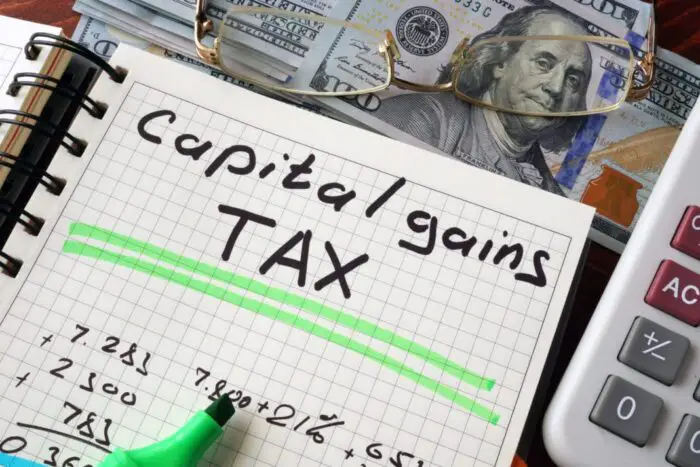How To File A Gift Tax Return, The Pain and Beauty of Filing Form 709 With The IRS
In this article, I will attempt to walk the layman through how to file a gift tax return, explaining it how I would explain it to a black Labrador retriever. Form 709 is the gift tax return. It is used to report gifts made during the year. The form is not required if the total value of all gifts is less than the annual exclusion amount, which is currently $15,000.
The form is also used to report any gifts that are subject to the gift tax, such as gifts over the formerly $15,000 annual limit, now the $16,000 limit after the inflation adjustment, which will need to be accounted for and which will reduce the estate tax exemption amount for your lifetime.
 For gifts made after December 31, 2009, the top tax rate is 35%. There are two types of gift tax returns: annual and split-interest. An annual return is filed for each calendar year in which a gift is made. A split-interest return is filed when a donor gives a gift that will pay income to one relative that is typically in a lower tax bracket, as a way of wealth transfer and tax avoidance, a legal strategy to put as much money into the private sector as possible, paying less in taxes and securing generational wealth for the future.
For gifts made after December 31, 2009, the top tax rate is 35%. There are two types of gift tax returns: annual and split-interest. An annual return is filed for each calendar year in which a gift is made. A split-interest return is filed when a donor gives a gift that will pay income to one relative that is typically in a lower tax bracket, as a way of wealth transfer and tax avoidance, a legal strategy to put as much money into the private sector as possible, paying less in taxes and securing generational wealth for the future.
If you are thinking about making a gift, you should consult with a financial advisor to discuss the implications of the gift tax.
What is the gift tax? How To File A Gift Tax Return
The gift tax is a tax on the transfer of property by one individual to another while receiving nothing, or less than full value, in return. The tax is imposed typically on the wealthy, but really on those who make a gift of more than the limit, being more than $16,000 in a single year. They also need to have more than $12.08M in their estate at death in order to be subject to the 40% estate tax, something that all estate planning attorney’s and financial planners pride themselves on reducing for their clients next of kin.
| Related Posts |
|---|
What are the implications of the gift tax?
The implications of the gift tax can be significant. First, if you give more than the limit in a single year, you will need to file a gift tax return. If you don’t file a return, you may be subject to penalties. Additionally, if you give more than the limit and do not report it, hefty taxation penalties in the range of 25% to 50% can arise as a result. The best way to avoid gift taxes and reduce your estate tax burden is as follows:
-Maximize your $16,000 allowance each year to each child and from each spouse, and start this as early as humanly possible. Generational wealth planning should start with $16,000 per year contributions into Custodial accounts from the child’s birth right up until the age of majority, trust me these numbers will really start to add up in time.
-Consider transferring income producing properties or assets to those in lower tax brackets, this takes the same income and transfers it to less wealth family members, who can keep more of the money due to paying less in taxation fees.
Final Thoughts On How To File a Gift Tax Return, What I Learned In The Estate Planning Section Of My CFP
The gist of filing a gift tax return, is that the IRS wants to keep track of your lifetime estate tax exclusion, to make sure that you stay within the allotted limits, and that you pay your fair share in estate taxes if you make enough money where this is necessary. Essentially, if you gift more than $16,000 in one particular year, you will incur what is called “gift taxes” meaning that whatever dollar amount you gave out over the $16,000 limit amount, gets reduced from your estate tax exclusion limit (between $11.18M and $12.08M depending on what year you are reading this in). For more details and information on all things business, finance, SEO, and now Tax and Accounting, be sure to read on or subscribe to our blog for additional details and information.
Cheers!
*Inflation Hedging.com
Sources:
https://www.bankrate.com/banking/cds/cd-rates/
https://money.cnn.com/data/markets/
Disclaimer: The opinions and documentation contained within this article and on this blog are the sole property of inflationhedging.com and are not to be copyrighted or reproduced in any manner, else legal action within the rights of the United States legal code could be use to obtain recompense. All articles and blog posts are the sole opinions of the writers of the blog, and are not necessarily in line with what exactly will work for you, you should consult a CPA, Tax Professional, or Financial Professional to determine what exact financial needs are in line with your interests. Also, from time to time, certain links on this website will be used to generate affiliate commissions, in order to support the health and growth of our website, health and business.










Leave A Comment